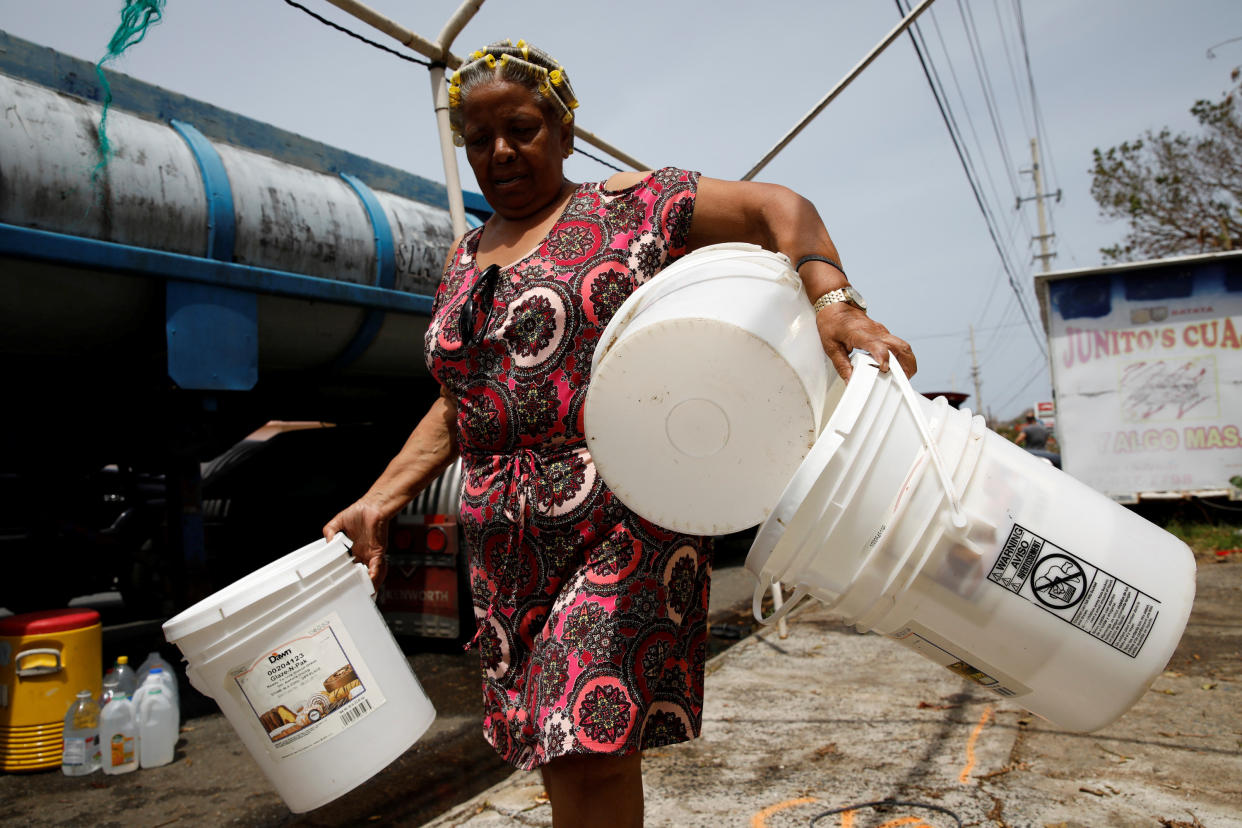The Storm That Crushed Puerto Rico Isn't Getting As Much Attention As Harvey Or Irma

Americans aren’t paying as much attention to the hurricane that devastated Puerto Rico and other Caribbean islands as they did to the storms that hit Texas and Florida, a new HuffPost/YouGov survey shows.
Hurricane Maria swept through Puerto Rico, the U.S. Virgin Islands and other parts of the Caribbean that were already reeling from the brunt of Hurricane Irma, leaving conditions that local officials described as “apocalyptic.” A week later, Puerto Rico remains largely without power and thousands are still living in shelters. Many mainland Americans are desperately searching for loved ones.
Just 27 percent of Americans say they’ve closely followed news about the effects of Hurricane Maria, the survey found. That’s down from 39 percent who say they watched Hurricane Harvey very closely and 43 percent who say the same about Hurricane Irma.
Only 19 percent report knowing anyone who was affected by Maria, compared to 33 percent for Harvey and 44 percent for Irma.
Other metrics suggest a similar drop-off. Google Trends, which tracks the level of interest in various search terms, shows that Maria never saw the same sort of steep spike in interest that Harvey and Irma did at their peaks.
By comparison, here’s what searches from Puerto Rico looked like over the same period:
According to analysis from FiveThirtyEight’s Dhrumil Mehta, Hurricane Maria ― and Puerto Rico ― saw far less coverage in TV and online news than those predecessor storms.
Much of the media “has been occupied with other things: a health care bill that failed to pass, a primary election in Alabama, and a spat between the president and sports players, just to name a few,” Mehta wrote, noting that the phrase “national anthem” came up in TV news more often last Sunday than “Puerto Rico” and “Hurricane Maria” combined. According to another recent HuffPost/YouGov survey, just 14 percent of Americans said they’d heard more about the disaster in Puerto Rico than about the NFL protests or the GOP’s efforts to repeal Obamacare.
Many Americans also don’t realize that Puerto Ricans are U.S. citizens. Three polls in the past few years put the percentage aware that Puerto Ricans have U.S. citizenship at between 43 and 54 percent. A new Morning Consult survey found that those who were reminded that Puerto Ricans are Americans were modestly more likely to support giving aid to their recovery efforts.
Some critics of President Donald Trump’s response to Hurricane Maria have alleged that it pales in comparison to his administration’s actions after Harvey and Irma.
The public gives positive ratings to both Trump specifically and the federal government as a whole for the handling of all three hurricanes, according to the HuffPost/YouGov survey. But they’re less strongly approving about the response to Maria.

Just 14 percent of those who say they or someone in their family was personally affected by Harvey and 13 percent of those affected by Irma disapprove of the federal government’s response to those hurricanes. While the sample size of those similarly affected by Maria is small, nearly 40 percent in that group say they disapprove.
Use the widget below to further explore the results of the HuffPost/YouGov survey by choosing the menu at the top to select survey questions and the buttons at the bottom to filter the data by subgroups:
Love HuffPost? Become a founding member of HuffPost Plus today.

The HuffPost/YouGov poll consisted of 1,000 completed interviews conducted Sept. 26-27 among U.S. adults, using a sample selected from YouGov’s opt-in online panel to match the demographics and other characteristics of the adult U.S. population.
HuffPost has teamed up with YouGov to conduct daily opinion polls. You can learn more about this project and take part in YouGov’s nationally representative opinion polling. More details on the polls’ methodology are available here.
Most surveys report a margin of error that represents some, but not all, potential survey errors. YouGov’s reports include a model-based margin of error, which rests on a specific set of statistical assumptions about the selected sample rather than the standard methodology for random probability sampling. If these assumptions are wrong, the model-based margin of error may also be inaccurate. Click here for a more detailed explanation of the model-based margin of error.
This article originally appeared on HuffPost.

